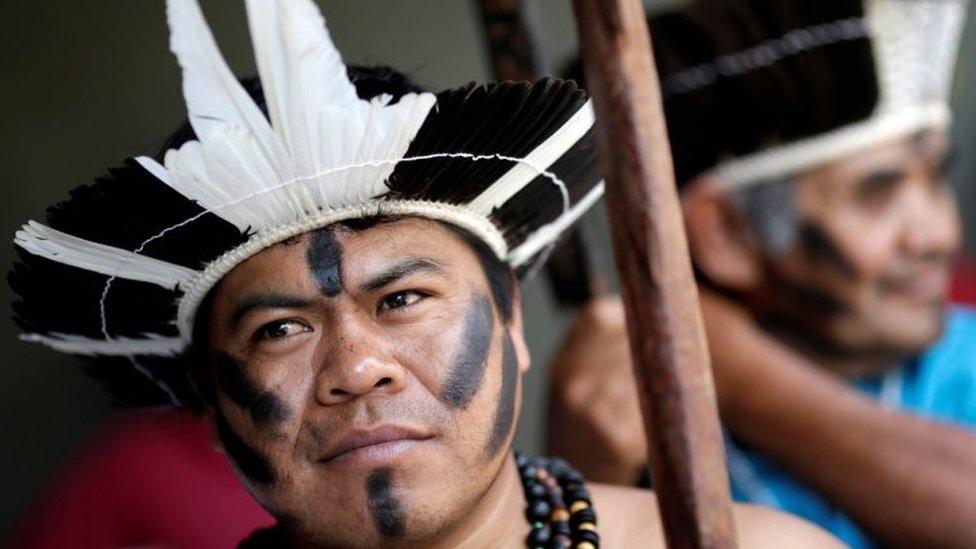Move to replace Brazil's indigenous affairs agency Funai
- Published

Dozens of protesters rallied outside the Congress building in the capital Brasilia
A congressional commission in Brazil led by a powerful farming lobby has recommended dismantling the country's indigenous rights agency, Funai.
It said the agency currently run by anthropologists should be replaced with one controlled by the justice ministry.
The panel also said about 80 Funai officials should be prosecuted for backing what it considered illegal land claims by indigenous groups.
Critics said the move was an attack on indigenous rights by the farming lobby.
They said the reform would leave indigenous tribes unprotected as farmers were trying to move further into the Amazon rainforest.
Brazil's indigenous leaders risk their lives fighting for survival
On Tuesday, dozens of protesters with body paint and feathered headdresses danced outside the Congress building in the capital Brasilia to protest against the commission's findings.
"The death of the Funai would be a sort of genocide because it has advised us on how to survive," Francisco, leader of the Kaingang people of southern Brazil, was quoted as saying by Reuters news agency.
"These lawmakers represent the interest of agribusiness, not our interests."
Activists say deforestation has recently increased in Brazil
Earlier this month, Antonio Costa, the head of Funai, was sacked just days after a brutal attack in which at least 10 indigenous people were hurt.
He complained that Funai had been left powerless after its budget was cut by more than 40%.
He said he had been dismissed "for being honest" and for defending the rights of indigenous peoples.
The assault in the northern state of Maranhao was carried out by farmers and landowners, the authorities say.
More than 800,000 indigenous people from different tribes live in Brazil, making up less than 1% of the country's population.
- Published5 May 2017
- Published26 April 2017
- Published20 June 2016
- Published6 September 2015